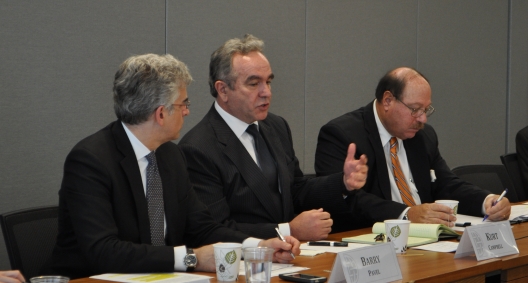 On October 24, the Atlantic Council hosted the second not-for-attribution workshop on extended deterrence in Northeast Asia with leading experts in the field, moderated by Barry Pavel, vice president and director of the Brent Scowcroft Center on International Security of the Atlantic Council, and Kurt Campbell, chairman and chief executive officer of the Asia Group LLC.
On October 24, the Atlantic Council hosted the second not-for-attribution workshop on extended deterrence in Northeast Asia with leading experts in the field, moderated by Barry Pavel, vice president and director of the Brent Scowcroft Center on International Security of the Atlantic Council, and Kurt Campbell, chairman and chief executive officer of the Asia Group LLC.
The discussion covered President Ma’s posture and Taiwan’s strategic stability toward the rising power of China. Further, questions were raised about the analytic parameter for the term “extended deterrence” and how it is applied to the United States’ fiscal reality and intervention in the Asia-Pacific region. In addition, the event also highlighted the dynamic of China’s strategy in South China Sea and East China Sea considering the presence of the United States.
The workshop covers key issues regarding potential adversary deterrence and US ally reassurance. Sustaining credible deterrence in twenty-first century Northeast Asia is far more complex, multi-layered, and continually evolving than the nuclear “balance of terror” during the Cold War.
